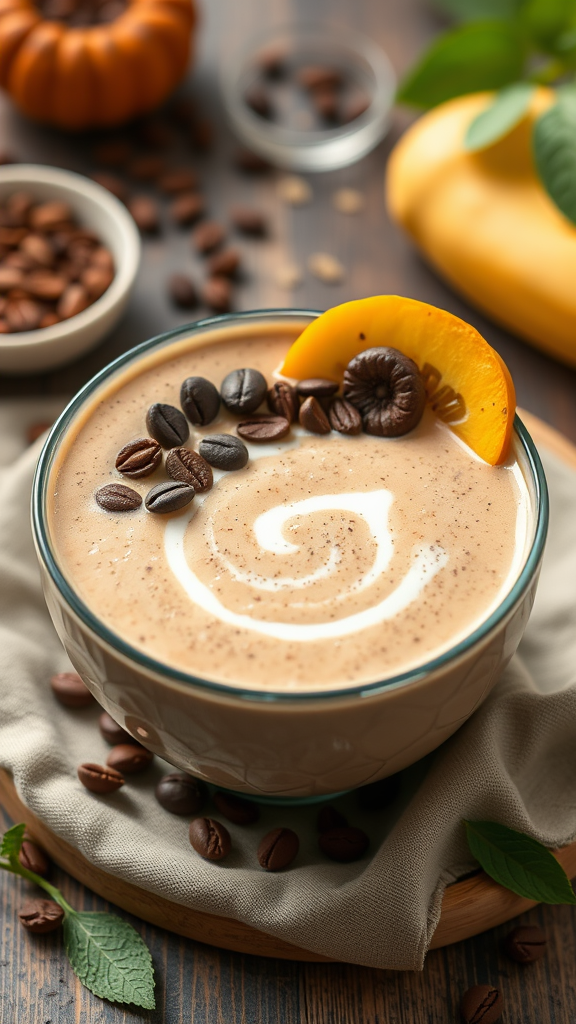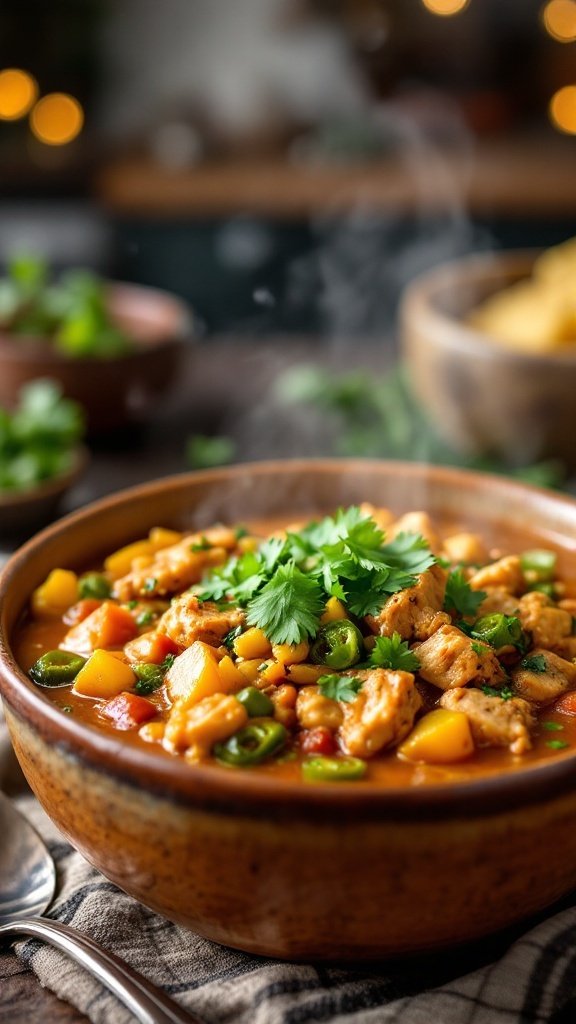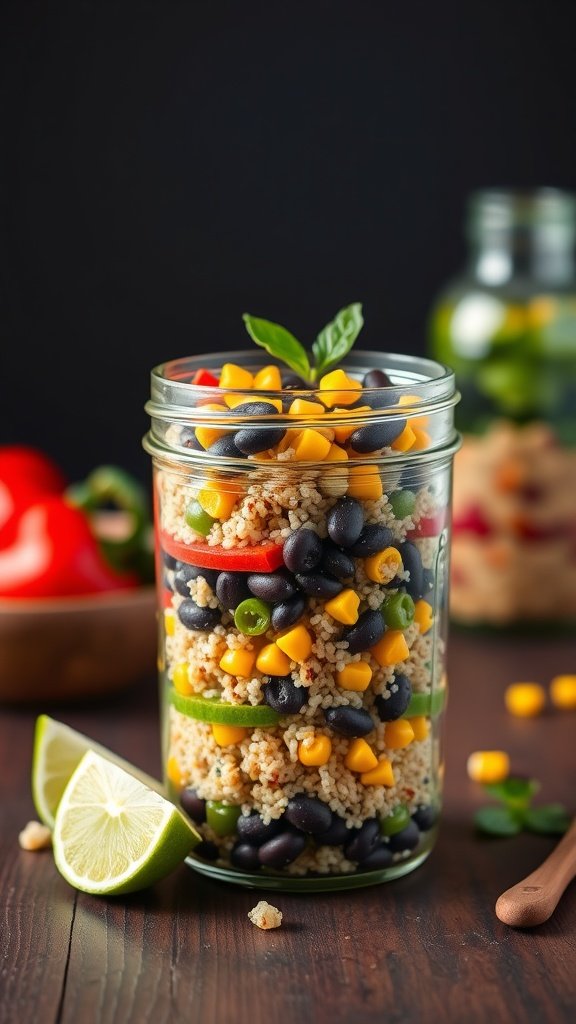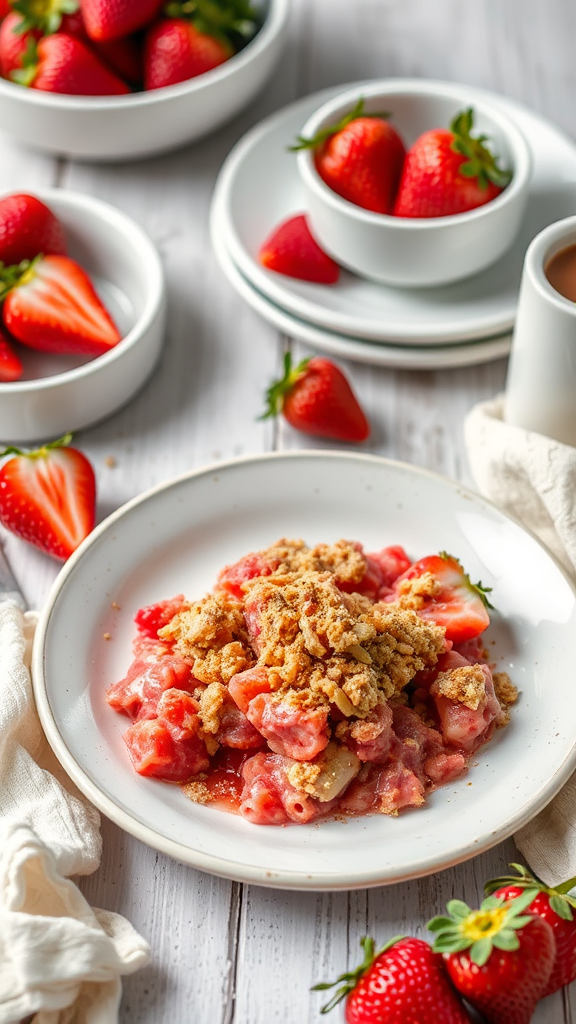5 Anti-inflammatory Spices
In a world where health is a top priority, the power of anti-inflammatory spices cannot be overlooked. These potent flavor enhancers are not just for adding a kick to your dishes – they also pack a punch when it comes to promoting wellness. From reducing inflammation and boosting immunity to aiding digestion and even improving cognitive function, the benefits of incorporating anti-inflammatory spices into your diet are as diverse as the spices themselves.
Picture this: a sprinkle of golden turmeric in your morning smoothie, a dash of zesty ginger in your stir-fry, or a pinch of aromatic cinnamon on your oatmeal. These simple additions can transform your meals from dull to delightful while also providing a plethora of health benefits. So, whether you’re a culinary connoisseur or a kitchen novice, diving into the world of anti-inflammatory spices is a flavorful journey worth taking.
So, why wait? Let’s uncover the secrets of these powerful spices and learn how they can revolutionize your meals and your health.
Benefits of Anti-inflammatory Spices
When it comes to spicing up your meals, why settle for just adding flavor when you can also boost your health at the same time? Anti-inflammatory spices not only bring a punch of taste to your dishes but also offer a myriad of health benefits. From reducing inflammation to improving digestion, these spices are a powerhouse of wellness.

One standout spice renowned for its anti-inflammatory properties is turmeric. Curcumin, the active compound in turmeric, is known for its potent anti-inflammatory effects, making it a must-have in your spice rack. Whether sprinkled on roasted veggies or stirred into a warming cup of golden milk, turmeric can easily be incorporated into your daily routine.
Ginger is another superhero spice that deserves a place in your culinary arsenal. Not only does it add zing to stir-fries and teas, but it also boasts anti-inflammatory and immune-boosting properties. Plus, ginger’s soothing effects on the stomach make it a go-to remedy for digestive issues.
And let’s not forget about cinnamon, a fragrant spice that does more than just enhance the taste of your morning oatmeal. Cinnamon is packed with antioxidants and has been shown to help combat inflammation, making it a sweet addition to your anti-inflammatory lineup.
By incorporating these and other anti-inflammatory spices into your cooking, you can elevate your dishes while also supporting your overall well-being. So why wait? Spice up your life and reap the benefits today.
Top Anti-inflammatory Spices
When it comes to combating inflammation, certain spices pack a powerful punch.
- Turmeric
Turmeric, with its vibrant golden hue, contains curcumin, a compound known for its potent anti-inflammatory properties. Not just a staple in curry dishes, turmeric can be sprinkled into soups, stews, and even smoothies to add a warm, earthy flavor.
- Ginger
Ginger, another spice celebrated for its anti-inflammatory benefits, adds a zesty kick to both savory and sweet dishes. Whether grated fresh into stir-fries or brewed into tea, ginger is a versatile ingredient that can help soothe inflammation and aid digestion.
- Cinnamon
Cinnamon, with its cozy aroma and sweet taste, is not just for sprinkling on oatmeal. This spice is rich in antioxidants and has been linked to reduced inflammation and improved blood sugar levels. Try adding a dash of cinnamon to your morning coffee or sprinkling it over roasted vegetables for a warming touch of flavor.
- Cayenne Pepper
The capsaicin in cayenne pepper has anti-inflammatory properties. It can help relieve pain and inflammation, especially when used topically for conditions like arthritis.
- Black Pepper
Black pepper contains the compound piperine, which has been found to have anti-inflammatory effects. Piperine also enhances the absorption of other anti-inflammatory compounds like curcumin
By incorporating these anti-inflammatory spices into your culinary repertoire, you can not only elevate the taste of your dishes but also boost their nutritional value. So go ahead, spice up your life and savor the benefits of these kitchen superheroes.
| Anti-inflammatory Spice | Health Benefits | Usage/Recipes |
|---|---|---|
| Turmeric | Powerful anti-inflammatory and antioxidant properties; supports joint health and boosts immunity. | Use in curries, soups, and smoothies; try golden milk or turmeric roasted vegetables. |
| Ginger | Reduces inflammation, aids digestion, and may help manage osteoarthritis. | Add to stir-fries, marinades, teas, and baked goods; ginger-turmeric tea is a soothing option. |
| Cinnamon | Regulates blood sugar, reduces inflammation, and has antimicrobial properties. | Sprinkle on oatmeal, yogurt, or baked goods; try cinnamon-spiced roasted sweet potatoes. |
| Cloves | Anti-inflammatory and analgesic effects; aids in digestion and may improve liver health. | Use in meat marinades, warm beverages, and baked goods; try spiced apple cider with cloves. |
| Cayenne Pepper | Contains capsaicin, which has pain-relieving and anti-inflammatory properties. | Add to savory dishes, sauces, and chili; cayenne-infused dark chocolate for a spicy treat. |
Recipes Using Anti-inflammatory Spices

You’ve got your pantry stocked with turmeric, ginger, and cinnamon—now it’s time to put them to good use in your kitchen. These versatile spices not only add flavor to your dishes but also pack a powerful anti-inflammatory punch. Let’s dive into some mouth-watering recipes that will make your taste buds dance with joy.
Savory Delights:
1. Turmeric Cauliflower Rice
- Ingredients: Cauliflower, turmeric, garlic, onions, and a splash of olive oil.
- Instructions: Grate cauliflower into rice-like grains, sauté with turmeric, garlic, and onions until golden brown. Enjoy as a low-carb alternative to rice.
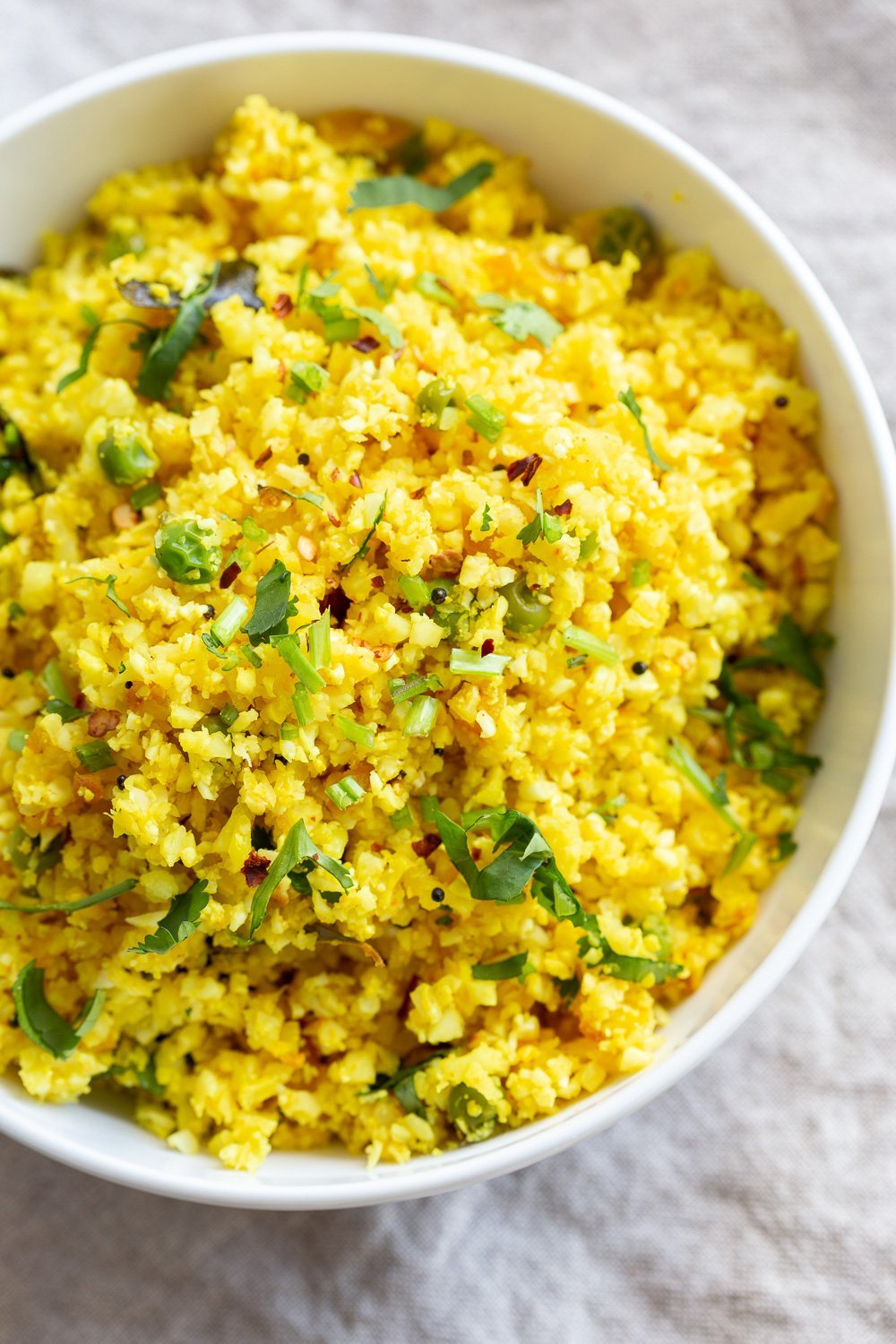
Full recipe & Image credit: veganricha.com
2. Ginger Garlic Stir-Fry
- Ingredients: Your favorite veggies, ginger, garlic, soy sauce, and a dash of honey.
- Instructions: Sauté veggies with ginger and garlic, add soy sauce and honey for a sweet-savory kick. Serve over rice or quinoa for a satisfying meal.
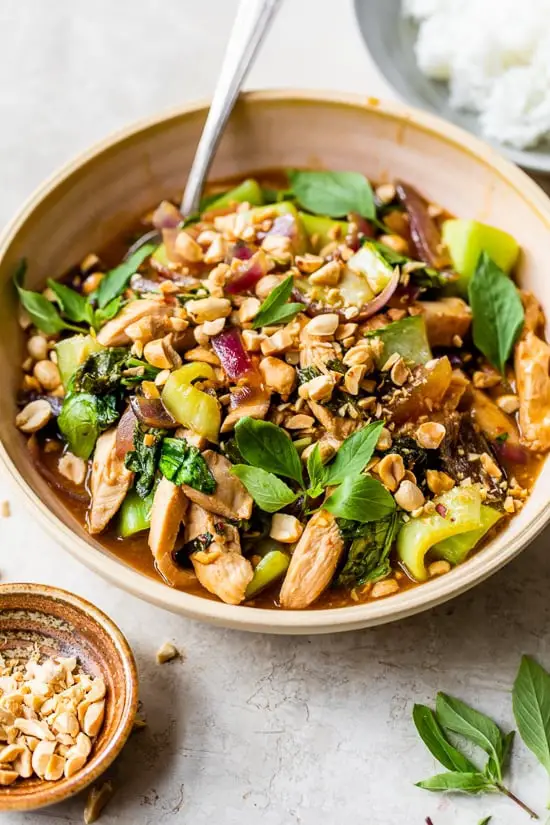
Full recipe & Image credit: skinnytaste.com
1. Cinnamon Apple Oatmeal
- Ingredients: Oats, almond milk, chopped apples, cinnamon, and a drizzle of maple syrup.
- Instructions: Cook oats in almond milk, add chopped apples, sprinkle with cinnamon, and sweeten with maple syrup. A cozy breakfast option to kickstart your day.

Full recipe & Image credit: Eating Bird Food
2. Golden Milk Chia Pudding
- Ingredients: Chia seeds, coconut milk, turmeric, ginger, and a hint of honey.
- Instructions: Mix chia seeds with coconut milk, turmeric, ginger, and honey. Let sit overnight in the fridge for a creamy, antioxidant-rich dessert.

Full recipe & Image credit: choosingchia.com
These recipes not only showcase the vibrant flavors of anti-inflammatory spices but also demonstrate how easy it is to incorporate them into your daily meals. So, fire up your stovetop, get creative in the kitchen, and let these spices elevate your culinary creations to new heights. Your taste buds—and your health—will thank you.
Incorporating Anti-inflammatory Spices into Your Diet
When it comes to incorporating anti-inflammatory spices into your diet, the key is consistency. Start by adding a pinch of turmeric to your morning smoothie or sprinkling cinnamon on your oatmeal. These small changes can make a big difference in reducing inflammation in your body.
Ginger is another versatile spice that can be used in both savory and sweet dishes. Try incorporating fresh ginger into stir-fries or grating it into a cup of hot tea. The zesty flavor of ginger adds a tasty kick to any meal while also providing anti-inflammatory benefits.
For those who enjoy a bit of heat, cayenne pepper is a great option. Add a dash to soups, stews, or even dark chocolate desserts for a unique and spicy flavor profile. The active compound in cayenne pepper, capsaicin, has been shown to have anti-inflammatory properties that can help alleviate pain and reduce inflammation.
Incorporating these spices into your daily meals doesn’t have to be complicated. Experiment with different combinations to find what works best for your taste buds. Whether you’re making a cozy turmeric latte before bed or whipping up a ginger-infused stir-fry for dinner, there are endless possibilities to explore.
By incorporating these anti-inflammatory spices into your diet regularly, you can not only enhance the flavor of your meals but also promote overall health and well-being. So next time you reach for the salt and pepper, consider adding a sprinkle of turmeric or a dash of ginger instead. Your body will thank you.
In a world where health is wealth, anti-inflammatory spices stand as the unsung heroes of our kitchen cabinets. From the golden glow of turmeric to the fiery kick of ginger, these spices pack a punch not just in flavor but in their ability to fight off inflammation in our bodies. By embracing the power of these natural healers, we can spice up our lives while soothing our systems from within.
So, next time you reach for that familiar salt shaker, consider sprinkling a little turmeric or cinnamon instead. Your taste buds will thank you, and your body will too. Don’t be afraid to get creative in the kitchen and explore the endless possibilities that these anti-inflammatory spices have to offer. Remember, a little sprinkle goes a long way towards a healthier you. Embrace the spice, savor the flavor, and let your journey to a more vibrant, inflammation-free life begin.

